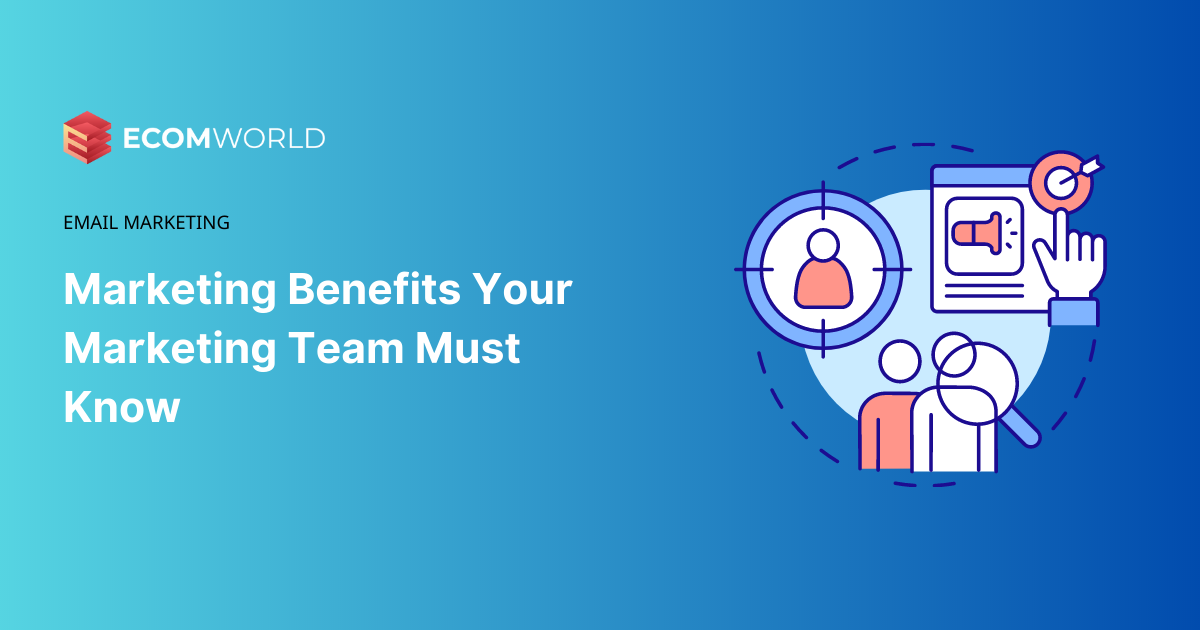Table of Contents
As a marketer, you may have heard colleagues discussing the demise of email marketing. It’s a common concern among many marketing departments. However, I’m here to emphasize the importance of email marketing and highlight its benefits.
Email marketing remains a vital tool in your toolkit and continues to yield significant advantages. Let’s explore why email marketing matters and benefits your team.
Creating personalized content.
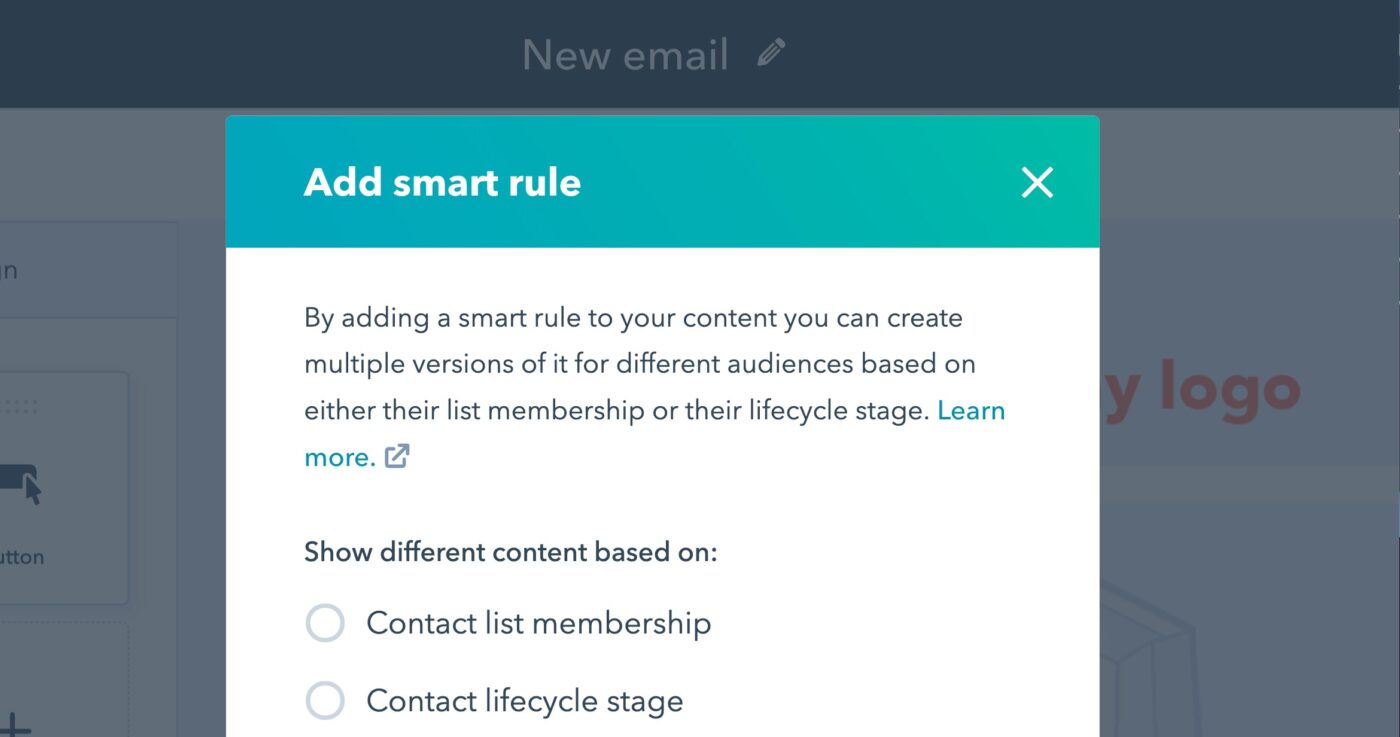
With email marketing, you can customize your campaigns and create targeted content.
Personalization can be as small as including a contact’s name in the email. In fact, emails that include the first name of the recipient in their subject line have a higher clickthrough rate than those that don’t.
On the other hand, you can also create individualized content based on segmenting your audience, so you send the right emails to the right customers. For instance, perhaps you want to send an email marketing campaign to returning customers and a different one to one-time customers.
One of the main benefits of email marketing is that your content can be highly personalized to your audience’s needs. Your emails might have variations including different images or subject lines to increase your engagement. You can even create segmented lists based on geography or engagement levels.
To have a successful email marketing strategy, you need to send the right email to the right people at the right time. That’s where segmentation and personalization can help.
Collecting feedback and surveys.
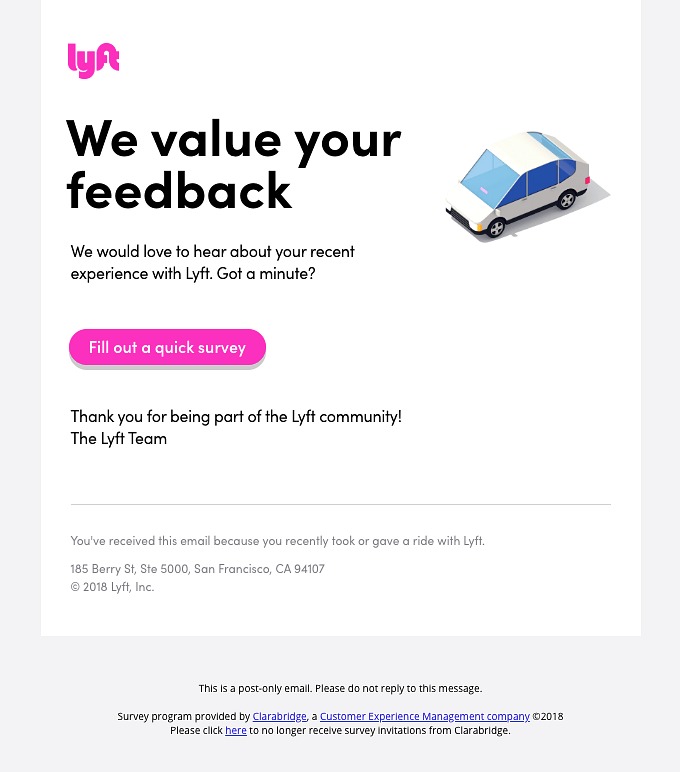
Keeping a pulse on customer experience is very valuable if you want customers to continue to interact, engage, and purchase from your brand.
Email marketing can help you do this. For instance, you can send customer satisfaction surveys to obtain customer feedback through email campaigns.
In fact, this is one of the best ways to calculate your Net Promoter Score (NPS). This score helps you find out the percentage of customers who are brand ambassadors and the ones who are detractors. With this information, you can come up with strategies to improve your customer experience.
Improving sales.
While email marketing is undeniably an excellent marketing tool, it also has a significant impact on sales. In fact, 59% of marketers consider email as their most profitable source of return on investment (ROI), and those who employ segmented campaigns have reported up to a staggering 760% increase in revenue.
Email marketing campaigns can effectively showcase your products or services, re-engage customers who have abandoned their carts, and deliver exclusive offers to entice purchases.
Moreover, a survey revealed that 59% of respondents acknowledged that marketing emails have influenced their purchasing decisions.
By leveraging email marketing, you can deliver targeted messages to an audience that has willingly subscribed to receive your updates and is more likely to make purchases from you.
Furthermore, email marketing allows for the automation of certain aspects of the sales process, leading to increased sales. With tools like HubSpot’s free email marketing tool, you can automate sales drip campaigns and send pre-defined messages to prospects that your sales team wishes to follow up with.
Communicating with your audience.
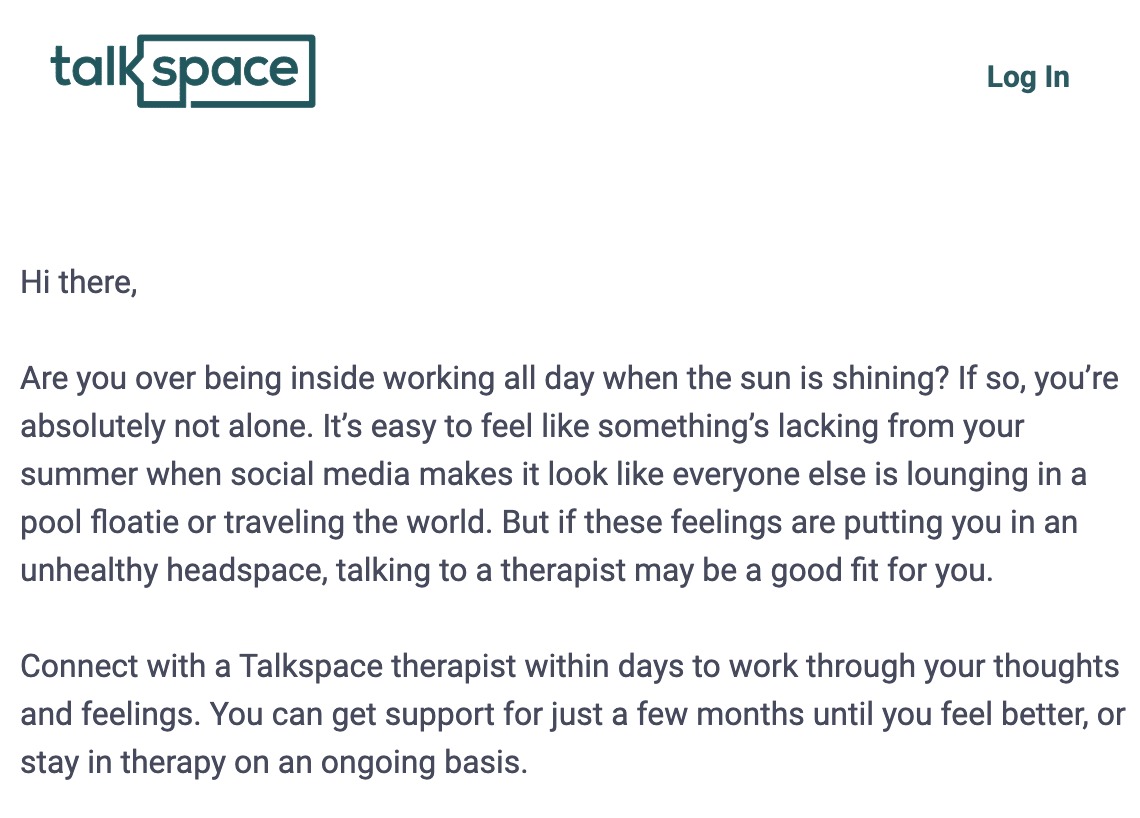
As a marketer, it’s always important to improve communication with your audience. When your audience feels like they can talk to you, they’re more likely to become loyal to your brand.
Just think — people appreciate good emails. Think back to the last time you received a marketing email from a brand you love — was it disruptive or did you enjoy looking at the latest news? If it’s a brand you like, you probably enjoyed the experience and it keeps you in touch with one of your favorite brands.
With email marketing, you can reach more of your audience and easily communicate with brand ambassadors. Plus, these emails keep your audience engaged every time of the year, whether it’s a slow or busy season.
Generating traffic to your site.
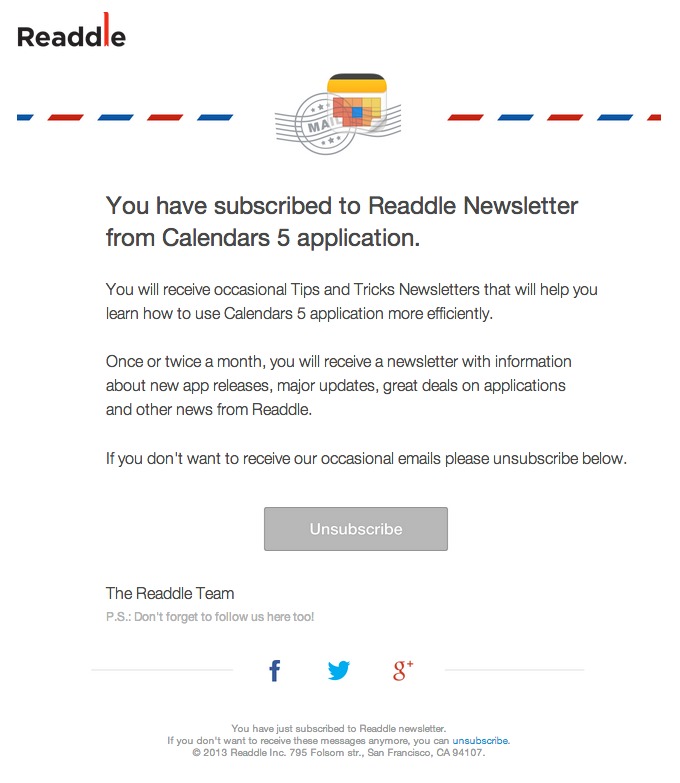
When it comes to distributing great content to your audience, email marketing campaigns play a crucial role. Through email, you can drive traffic to your website and enhance your search engine optimization (SEO) efforts. Moreover, it allows you to keep your audience engaged with your brand and your website.
This demonstrates how email can effectively provide value to our audience by delivering content directly to their inboxes and generating traffic to our website.
When creating an email that includes links to your content, it’s important to ensure that each email contains a compelling call to action (CTA). This prompts readers to click through to your website, increasing their engagement and encouraging further interaction with your brand.
If there’s anything else I can assist you with or if you need further revisions, please let me know.
Sending timely campaigns.
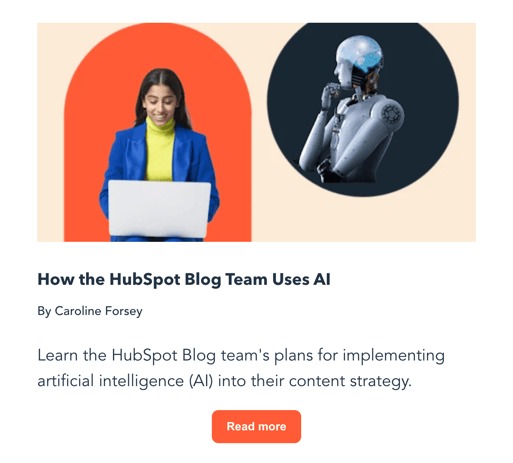
Although traditional marketing campaigns have a time and place, they can take months to plan and organize. Even then, you probably aren’t sure if people are going to see your campaign assets at the right time.
However, with email marketing, you can create an entire campaign on shorter notice because it doesn’t take as long to plan. Additionally, you can ensure your audience sees the email at the right time.
For example, you can make sure you send content at the right time by segmenting your audience.
Increasing leads.
In the same vein as improving sales, you can also increase your leads with email marketing. In fact, with the inbound method, email marketing is used to nurture leads and improve conversions.
For example, let’s say you downloaded a lead magnet from a site. Then, you start receiving drip emails, and in the end, you decide to book a demo and learn more. You just went from an MQL to an SQL, which improves the marketing team’s number of qualified leads to the sales team.
Email marketing campaigns can further qualify leads, so your sales team isn’t wasting time on bad leads. Plus, if your company does lead scoring, you can keep track of whether those leads open your emails or engage by clicking the links in your email.
Reaching the right people at the right time.
To ensure the success of your marketing campaign, it is crucial to reach the right customers at the right time. This point can not be emphasized enough because it plays a pivotal role in driving engagement and conversions.
Email marketing offers a powerful solution for reaching your target audience effectively. People have a habit of regularly checking their emails across various devices, providing you with multiple touchpoints to connect with them. This accessibility and frequency greatly enhance the potential success of your marketing efforts.
By consistently appearing in your audience’s inbox, you establish a regular presence and remain top-of-mind. This continuous exposure helps build brand awareness, fosters trust and increases the likelihood of conversions. When the time is right for your audience to make a purchase or take action, your brand will be readily available and considered.
Email marketing enables you to cultivate ongoing relationships with your audience by delivering valuable content, personalized offers, and timely updates. By utilizing segmentation and automation, you can further refine your targeting and ensure that your messages are delivered at the most opportune moments.
Producing cost-effective campaigns.
While traditional campaigns like direct or print can be costly, email marketing campaigns tend to be more cost-effective.
For example, you won’t have to pay for any photoshoots, location fees, printers, mailing, or placement. All you need is a copywriter and graphic artist (if you aren’t using stock images). This can even be one person on your team.
Additionally, email campaigns don’t take long to produce. If needed, you can produce an email in one day, which is much more cost-effective than the time it takes to produce a direct or print campaign.
Since time and budget constraints always impact marketers, email marketing campaigns can be more efficient, while also generating revenue and leads.
Providing more value to your audience.

One of the primary objectives of any business is to consistently provide value to its audience, fostering loyalty and encouraging repeat engagement.
Email marketing serves as an excellent platform for cultivating and nurturing loyal customers, even when they are not actively making a purchase. By delivering valuable content, insights, educational resources, or exclusive offers through email, you can maintain a connection with your audience and keep them engaged with your brand.
Since customers or prospects have willingly opted in to receive your emails, you have the opportunity to provide additional resources and relevant information to contacts who have demonstrated an interest in what you have to offer. This targeted approach allows you to tailor your content and promotions to specific segments of your audience, enhancing their overall experience and increasing their engagement.
By consistently delivering value through email marketing, you capture the attention and interest of more people, leading to higher levels of customer engagement and ultimately, a higher return on investment (ROI) for your marketing efforts.
Having a forum for self-promotion.
Sometimes it can be awkward to self-promote in places where prospects haven’t necessarily opted-in to receive updates about your business. However, self-promotion is one of the best ways to attract customers. If you can’t promote yourself and sell your company, no one will buy from you.
With email marketing campaigns, you’ll always have an avenue to promote yourself, especially since customers opted-in. You can send emails about new products, features, benefits, or new content. Since customers want to hear from you, this self-promotion isn’t unwanted or disruptive.
Owning your media and contact lists.
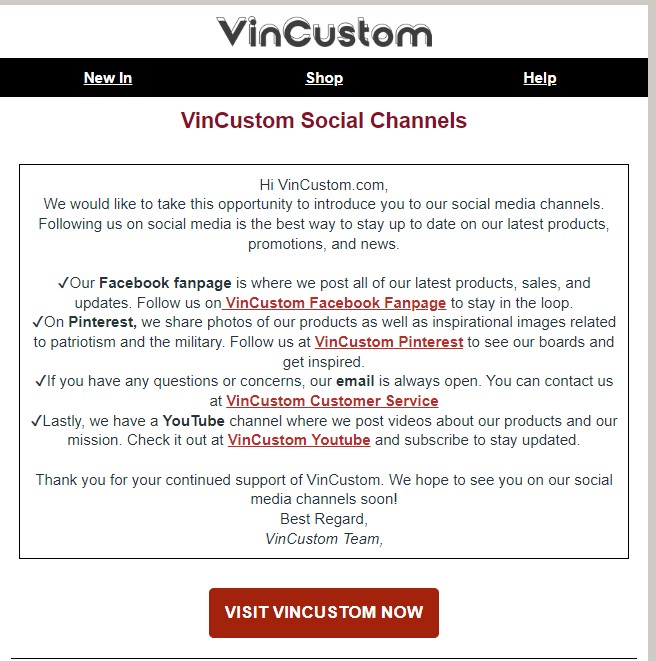
With platforms like social media, you don’t own your contact list or even the information you post. Typically, the content and your follower list are owned by the social media platform.
Just think–if social media went away tomorrow, how many followers and customers would you lose?
That’s why building an email list is important for marketers. This is a contact list you own and you can interact with them regardless of the email provider. Plus, you’ll also own the content that you produce and send as well.
Email marketing is one of the top ways to reach your audience. Plus, it can also improve sales and leads. Since this is still the place where people want to receive information, let’s just say that email marketing isn’t dead.
Increasing brand awareness.
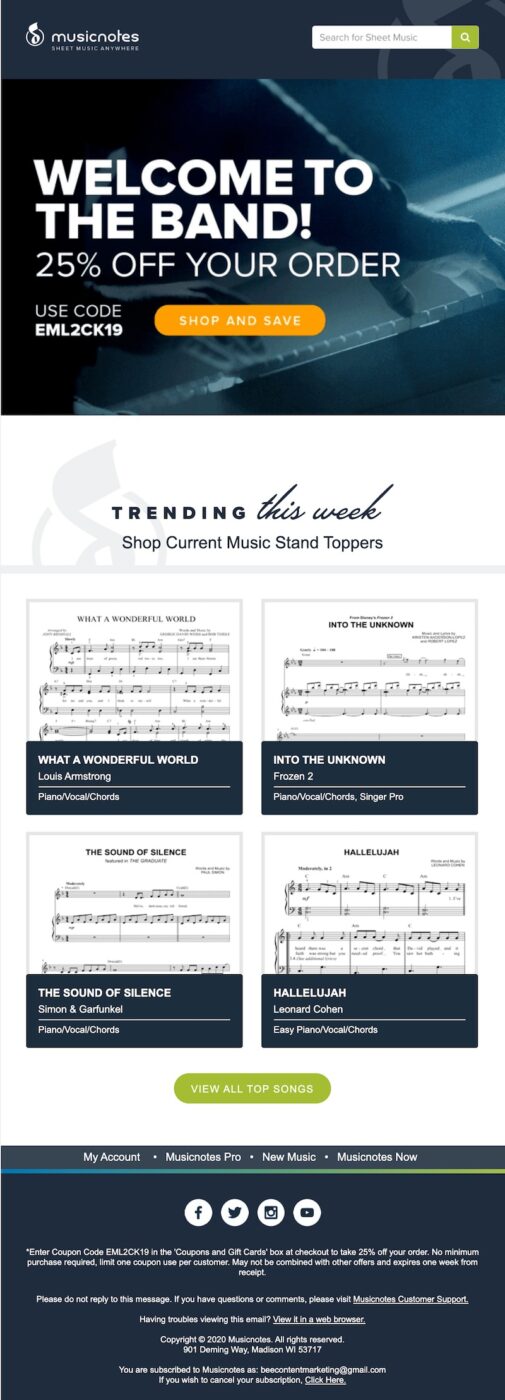
Email marketing indeed offers a powerful tool to boost brand awareness by establishing direct and consistent communication with your target audience right in their inbox. This consistent interaction enables you to build a strong relationship with your subscribers, making your brand memorable and increasing its visibility.
Through email marketing, you have the opportunity to deliver valuable and relevant content, including promotions, newsletters, and product updates. By consistently providing value, you cultivate a positive perception of your brand and keep your subscribers engaged and informed. This continuous exposure helps to reinforce your brand identity and maintain top-of-mind awareness, increasing the likelihood of future interactions and conversions.
Integrating social media links within your emails can further amplify your brand’s reach. By encouraging subscribers to share your content with their networks, you tap into the power of word-of-mouth marketing and extend the reach of your brand message beyond your immediate subscriber base.
Additionally, email marketing analytics provide valuable insights into how your audience is engaging with your content. By analyzing metrics such as open rates, click-through rates, and conversion rates, you can gain a deeper understanding of your audience’s preferences and behaviors. This data-driven approach allows you to refine your email marketing strategy over time, optimizing your campaigns for better results and maximizing the impact of your brand awareness efforts.
Saving time
Email automation is a valuable feature that can save you time and streamline your email marketing efforts. By creating personalized, automated campaigns, you can deliver targeted messages to your subscribers based on their behavior or specific segments.
With email marketing automation, you can set up workflows that trigger specific messages or series of emails based on predefined conditions. For instance, you can create a welcome series that automatically sends a sequence of emails to new subscribers, introducing them to your brand and nurturing their engagement over time. Similarly, you can leverage automation to send abandoned cart emails, reminding customers of items they left behind and encouraging them to complete their purchases.
By setting up these automated campaigns, you can schedule and automate your email communications in advance. This allows you to focus on other important aspects of your business while your emails are being delivered to your audience at the right time. The automation process runs in the background, ensuring that your subscribers receive a consistent and efficient experience without requiring manual intervention for each individual email.
Email automation not only saves you time but also helps deliver a personalized and relevant experience to your subscribers and customers. By leveraging automation, you can provide timely and targeted messages that align with their interests and preferences, ultimately enhancing their overall experience and increasing the likelihood of conversions.
Measuring campaigns’ success.
Running A/B tests for emails is a valuable strategy to optimize your email campaigns and improve their performance. By testing different elements of your emails, such as subject lines, images, and CTAs, you can gather data on what resonates best with your audience and make data-driven decisions to enhance your email marketing efforts.
Most email marketing apps offer A/B testing functionality that allows you to set up experiments with different variations of your email elements. You can create multiple versions of your email, each with a unique element you want to test and send them out to a subset of your email list. The app will then track the performance metrics, such as open rates, click-through rates, and conversions, for each variation.
After the test period, you can analyze the results to determine which variation performed better in terms of your desired goals. The winning variation can then be sent to the remaining email list, ensuring that you maximize engagement and conversions based on the data-driven insights gained from the A/B test.
By regularly conducting A/B tests for different email elements, you can continually refine and optimize your email campaigns. This iterative process allows you to learn more about your audience’s preferences and behaviors, and ultimately improve the effectiveness of your email marketing strategy.
Learning more about your audience.
Data is everything. You can track email open rates, click-through rates, and conversion rates to identify what types of content and messaging your audience engages with most. Additionally, you can gather data through sign-up forms and social media links in your emails, enabling you to understand your subscribers’ demographics, preferences, and behaviors.
You can then use this information to segment your email list and deliver more personalized and relevant content to your audience. By continually learning about your audience through email marketing, you can improve targeted marketing efforts and drive better results for your business.

